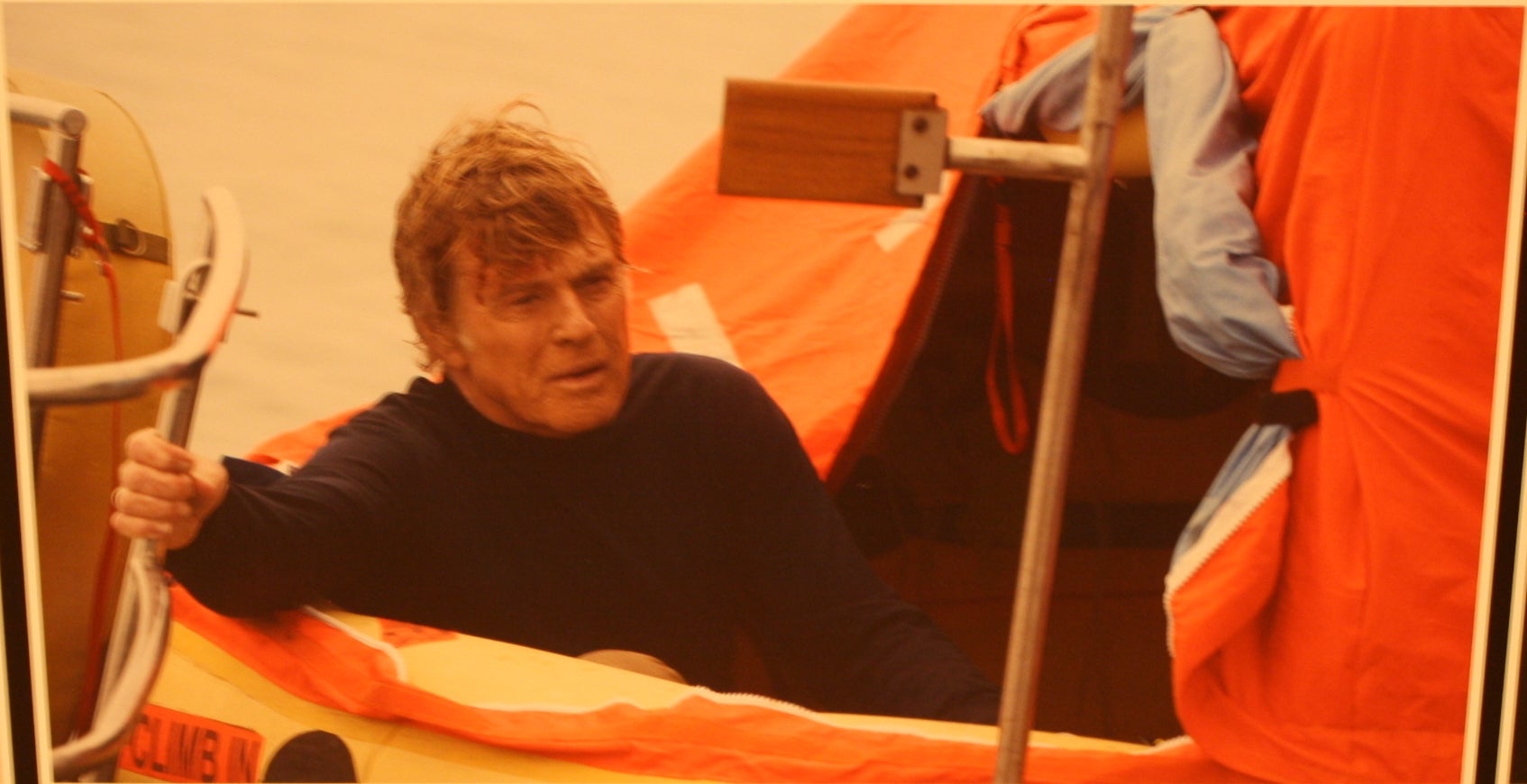Cannes Film Festival 2013 review: All Is Lost starring Robert Redford is almost dialogue-free, but exceptionally compelling nevertheless
JC Chandor's latest film sees 76-year-old Redford soaked, frozen bloodied and battered

JC Chandor’s remarkable second feature (after 2011’s Margin Call) is a story of a man lost at sea. There is only one actor (Robert Redford as the sailor) and no dialogue at all outside the short voice-over at the beginning of the film and the expletive that Redford yells in the depths of his despair.
Nonetheless, the film (screening out of competition in Cannes) has such rhythm and intensity that it makes utterly compelling viewing.
As the film starts, we hear Redford’s words in a mournful letter to his family, telling them he has only half a day’s ration, that he has been fighting his hardest to stay alive but that “all is lost.” We then flash back eight days. Aboard his yacht, which he is sailing alone far from land, he is suddenly jolted awake. In a freak accident, a metal container has pierced the side of his boat. There is a small hole and water is seeping into the hold.
The sailor is eminently practical. He patches the hole as best he can. However, his radio instruments are all soaked and broken. When the inevitable storm comes, his plight worsens.
Making this film must have been a grueling experience for Redford, who is now 76. He is on screen in almost every shot. We see him soaked, frozen, thrown around the boat, bloodied and battered by the elements. It’s an exceptional performance. He is playing a man who simply won’t give up.
You wonder just how Chandor can manage to make a feature film about a man stuck on a damaged and sinking boat seem dramatic. It’s the detail and precision of his storytelling style that makes All Is Lost so engrossing. As viewers, we are entirely caught up in the sailor’s struggle. In its own National Geographic style, the film is also very spectacular. Chandor throws in some very striking imagery of buffeting waves and storm clouds. From time to time, there are underwater shots of the shoals of fish and – latterly – the sharks gathering around the stricken vessel.
Music is used sparingly but to great effect. The sound editing , though, is one of the film’s strongest elements. The sea and the wind make their own constant refrain.
All Is Lost could have been very dull if it was just a yarn about a sailor stuck on a boat in the middle of nowhere. What gives it such urgency is the constant changes in the circumstances Redford faces. At first, the damage to the boat looks relatively minor. Quickly, we realise that he is in a life or death struggle. If he makes the smallest mistake, mis-ties a knot or loses his footing on deck, we know he will be done for.
It’s to Chandor’s credit that he contrives an ending that is both graceful and dramatic without lapsing into melodramatics. Two years ago, the silent film The Artist proved an Oscar-winning sensation. It wouldn’t be a surprise if All Is Lost, another film in which almost no words are spoken, achieves something similar.
Join our commenting forum
Join thought-provoking conversations, follow other Independent readers and see their replies
Comments